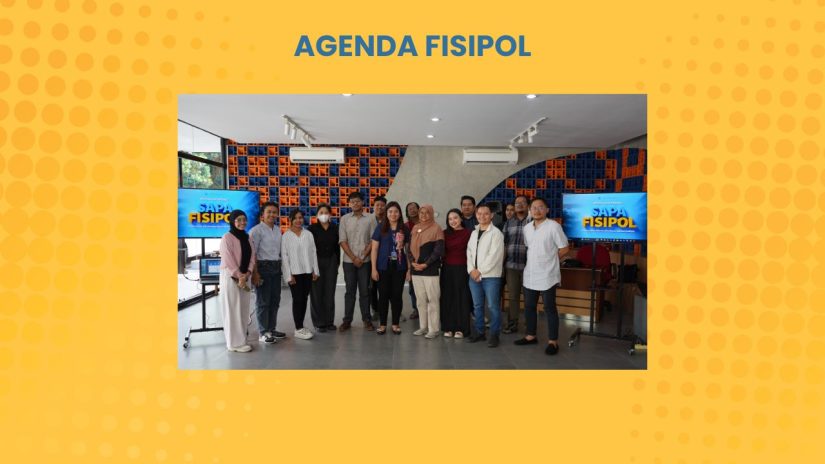
The Faculty of Social and Political Sciences (FISIPOL) at Universitas Gadjah Mada organized SAPA FISIPOL (Silaturahmi dan Pemberitaan Aktual FISIPOL) on Friday, July 25, 2025, at BRIWork FISIPOL UGM. This strategic forum brought together academics and journalists from both national and local media, aiming to strengthen a knowledge-based ecosystem of news reporting.
In today’s era of information disruption—where speed often outweighs accuracy—FISIPOL recognizes the importance of fostering synergy between academic institutions and the media. SAPA FISIPOL is designed as an open dialogue platform to encourage collaboration between these two strategic actors in enriching public narratives that are accurate, critical, and relevant.
The event featured two of FISIPOL’s research and capacity-building centers: the Center for Digital Society (CfDS), represented by CfDS Executive Secretary Syaifa Tania, and the Center for Capacity Development and Cooperation (PPKK), represented by PPKK Deputy Director Pradhikna Yunik. Both centers introduced various programs, research initiatives, and collaboration opportunities that can serve as credible sources for media coverage, particularly on socio-political issues and digital technology.
Through its discussion sessions and institutional presentations, SAPA FISIPOL is planned to become a regular event. The initiative is not only intended as a platform for promoting campus units but also as a way to directly hear the needs, challenges, and feedback from journalists. FISIPOL hopes that the relationship between the university and the media will extend beyond the usual source-reporter dynamic, evolving into a long-term partnership that mutually reinforces both sides.
By holding SAPA FISIPOL, FISIPOL UGM reaffirms its commitment to actively engaging in the public sphere, disseminating research findings, and contributing to the development of a more literate and critically minded society. This synergy between media and academia is expected to foster healthier practices of public communication that serve the wider public interest.
This initiative is also in line with the spirit of the Sustainable Development Goals (SDGs), particularly Goal 16 (Peace, Justice, and Strong Institutions), which emphasizes inclusive and accountable institutions, as well as Goal 17 (Partnerships for the Goals), which highlights the importance of multi-stakeholder collaboration to achieve sustainable progress.
